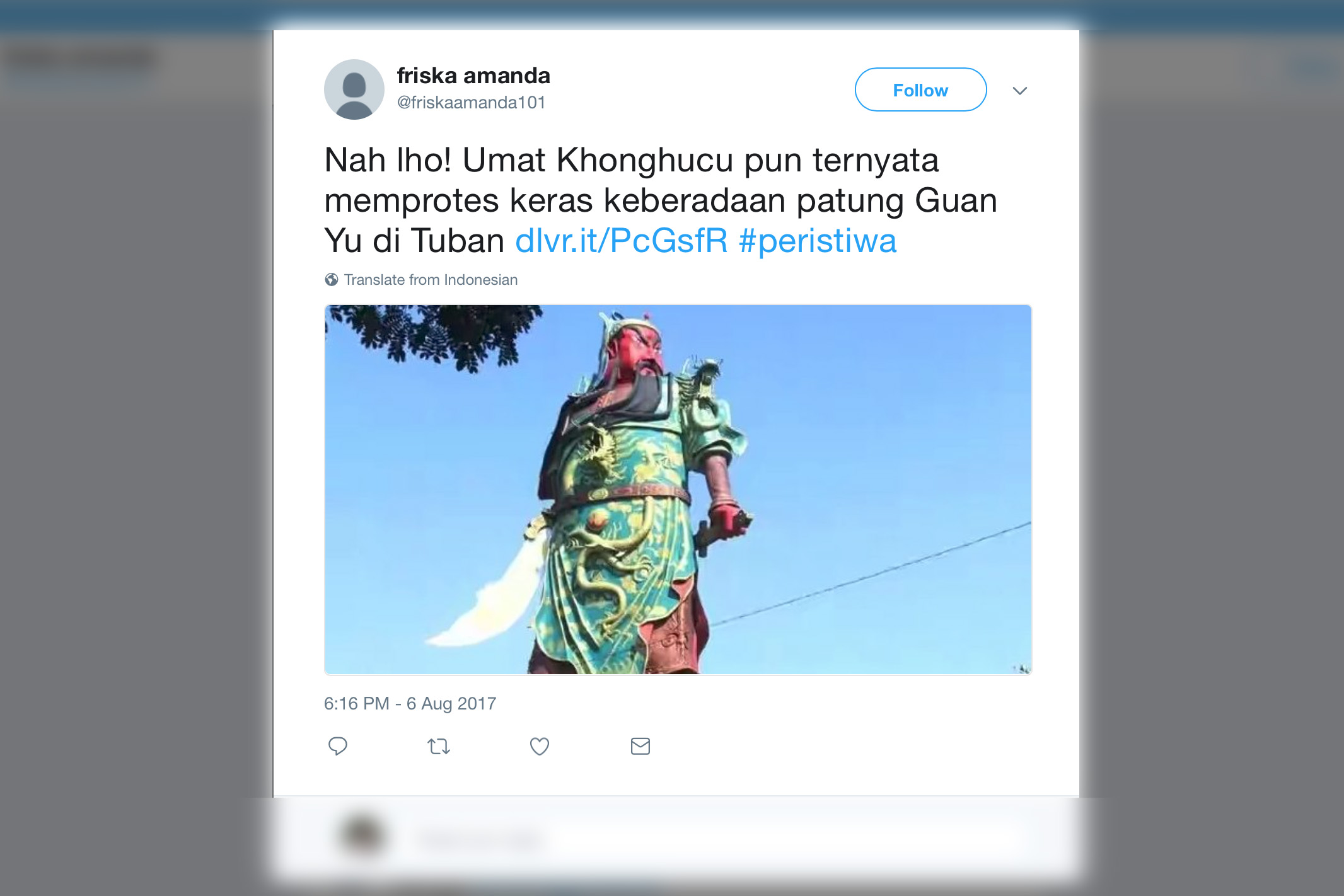A statue of a Confucian god standing 30 meters high caused cultural conflict at the Kwan Seng Bio temple in Tuban, Indonesia. This contreversy is not the first of it's kind, reports of statues being destroyed or vandalised are ever more often since Muslim extremists started to press for the adoption of Shariah law throughout Indonesia.
Indonesia is a Muslim-majority country, however unlike Malaysia or Brunei, the Indonesian Constitution guarantees freedom of religion. Out of the six recognised religions, Confucianism is one that was brought over by Chinese merchants.
Indonesia has a history in Anti-Chinese sentiments, which according to East Java Muslim Anti-Discimination Network coordinator Aan Anshori has become strong.
Local news reported that it was the height and size was what protest coordinatior Didik Muadi saw as menacing, "This statue is so tall, it’s as if the god of war has taken over Tuban". Local officals supported the statue's monumental presence in hopes to boost tourism. The temple itself is named as "The Biggest Chinese Temple in Southeast Asia".
The protesters seemed to misunderstand the Confucian god and the Chinese culture, according Tuban Regency Legistative Body member Abu Cholifah. While locals remain unwaivered, he commented that it's possible that the protesters are politicizing the statue after their own interests.
The statue of the warrior god, Kwan Sing Tee Koen, was meant to symbolize loyalty and justice.
Non-government bodies are suggestiong to replace the statue with a monument that represents the struggle to gain independence for Indonesia. "They are given 7 days to remove the monument, if by then it is still erected then we'll take the matter to our own hands", Didik Muadi told Tempo.
East Java's Regional Legislative Body is said to mediate the removal of the statue on legal terms, due to the lack of proper building permits and the critics from citizens.
